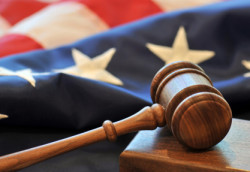Top Class Actions’s website and social media posts use affiliate links. If you make a purchase using such links, we may receive a commission, but it will not result in any additional charges to you. Please review our Affiliate Link Disclosure for more information.

“The cases we found illustrate clearly that class actions have not only helped victims of corporate law-breaking, but have also resulted in injunctive relief that protects us all from a wide array of corporate wrongdoing, from employment and civil rights violations to price-fixing and consumer fraud to automotive defects to health care abuses,” writes CJ&D Executive Director Joanne Doroshow, the study’s author.
“When a company practices a pattern of discrimination or receives a large windfall through small injuries to large numbers of people, a class action lawsuit is the only realistic way that harmed individuals can legally change the wrongdoing,” Doroshow writes.
The study was published during a period of increasing concern about the enforceability of forced arbitration clauses and bans on class action lawsuits in consumer and employment contracts. These contract clauses can allow major corporations to prevent those who have been harmed by their conduct to challenge them in court, even in cases where significant violations of federal rights and protections have been alleged.
“Class action lawsuits are among the most important tools that cheated and violated individuals and small businesses have to recover stolen money, hold large corporations and institutions accountable and deter future misconduct,” Doroshow stresses.
In 2005, Congress passed the Class Action Fairness Act (CAFA), which allows defendants to transfer class action lawsuits filed in state courts to the overburdened federal court system. Since the passage of CAFA, federal judges who are unable to handle the influx of cases have allegedly thrown out meritorious class action lawsuits.
The U.S. Supreme Court has also dealt a blow to class action litigation with several recent decisions that strengthen corporations’ ability to fight class action lawsuits or prohibit consumers from filing them at all. These decisions have allowed corporations to enforce arbitration clauses and bans on class action lawsuits. These court decisions have significant implications and impose serious barriers on the ability of injured consumers to come together to hold corporations accountable for illegal or unethical practices.
“Without the class action tool, corporations and businesses can ignore the law far more easily and operate with impunity,” Doroshow writes. “Class actions are also important for regulatory agencies, which often rely on information uncovered in class action lawsuits to pursue public enforcement actions against corporate lawbreakers.”
The study concludes that class action lawsuits are “among the most important tools we have in America.” They not only allow individual consumers and small businesses to recover money or stop discrimination, they also hold corporations accountable for wrongdoing and deter further misconduct.
However, class action lawsuits are being threatened. “Between legislative acts and a series of U.S. Supreme Court decisions, the availability of class actions has been limited to a point where now, in some areas, they are headed for extinction,” Doroshow writes. “If this happens, it would cut an irreparable swath through the state of justice in America. It is up to Congress and federal regulatory agencies to prevent this from happening. Let’s hope they do.”
ATTORNEY ADVERTISING
Top Class Actions is a Proud Member of the American Bar Association
LEGAL INFORMATION IS NOT LEGAL ADVICE
Top Class Actions Legal Statement
©2008 – 2024 Top Class Actions® LLC
Various Trademarks held by their respective owners
This website is not intended for viewing or usage by European Union citizens.















One thought on Study Finds Class Action Lawsuits Have Widespread Benefits
It’s very comforting to know that this process is purposeful, and holding corporations responsible for their lies, thievery, and misdoings.
I am very disappointed that the responsibility has been shifting from the state courts to the federal justice system. More red tape–more delays–more injustice in a system that claims they are the de facto embodiment of justice.
How ironic.